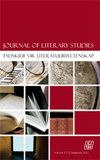A Weberian Reading of Henry James’s The Ambassadors
IF 0.1
4区 文学
0 LITERARY THEORY & CRITICISM
引用次数: 1
Abstract
Summary This article discusses the intriguing intersection of the literary work of prolific American writer, Henry James and the theories of German sociologist, Max Weber. In James’s oeuvre, The Ambassadors, stands out for depicting the impacts of ascending consumer capitalism in the early twentieth-century in a similar manner to Weber. Through the character representation, the novel symbolically engages with ideas of strict work discipline, moral devotion of Puritanism, and anti-Puritanical worldview. Furthermore, the embodiment of the controversy between supporters of the Puritanical order and the modern lax way of life are explored and represented in James’s work. Drawing on this relationship, this paper argues that The Ambassadors shares many of Weber’s arguments and ideas concerning the trinity of Puritanism, Protestantism, and capitalism, in spite of the fact that Weber’s magnum opus was published two years after The Ambassadors. I intend to bridge the works of Weber and James by exploring how James’s fiction forecasts Weberian approaches to Puritanism and the emergence of the capitalist spirit.亨利·詹姆斯《使节》的韦伯解读
本文探讨了美国多产作家亨利·詹姆斯的文学作品与德国社会学家马克斯·韦伯的理论之间的有趣交集。在詹姆斯的作品《大使》中,他以与韦伯相似的方式描绘了20世纪初消费资本主义上升的影响。小说通过人物的表现,象征性地表达了严格的工作纪律、清教主义的道德奉献和反清教的世界观。此外,詹姆斯的作品还探讨和体现了清教徒秩序支持者与现代宽松生活方式之间的争论。基于这种关系,本文认为《公使》在清教、新教和资本主义三位一体的问题上与韦伯有许多相同的观点和观点,尽管韦伯的巨著是在《公使》出版两年后出版的。我打算通过探讨詹姆斯的小说如何预测韦伯对清教主义的研究以及资本主义精神的出现来连接韦伯和詹姆斯的作品。
本文章由计算机程序翻译,如有差异,请以英文原文为准。
求助全文
约1分钟内获得全文
求助全文
来源期刊

Journal of Literary Studies
Multiple-
CiteScore
0.50
自引率
0.00%
发文量
0
期刊介绍:
The Journal of Literary Studies publishes and globally disseminates original and cutting-edge research informed by Literary and Cultural Theory. The Journal is an independent quarterly publication owned and published by the South African Literary Society in partnership with Unisa Press and Taylor & Francis. It is housed and produced in the division Theory of Literature at the University of South Africa and is accredited and subsidised by the South African Department of Higher Education and Training. The aim of the journal is to publish articles and full-length review essays informed by Literary Theory in the General Literary Theory subject area and mostly covering Formalism, New Criticism, Semiotics, Structuralism, Marxism, Poststructuralism, Psychoanalysis, Gender studies, New Historicism, Ecocriticism, Animal Studies, Reception Theory, Comparative Literature, Narrative Theory, Drama Theory, Poetry Theory, and Biography and Autobiography.
 求助内容:
求助内容: 应助结果提醒方式:
应助结果提醒方式:


